Affiliate Disclosure: We earn a commission if you purchase through one of our links at no additional cost to you.
Finding Photography Information Online and Offline
Being a photographer means you always need to know something else. In this episode of The Photo Flunky Show, we’ll share some of our favorite ways to find out more information about photography.
We’ll discuss options for education, tips, gear advice, reviews and more. You can find people in your area to share tips, news and advice. There are plenty of places online to get instant access to opinions, training, gear reviews and examples of other people’s work.
Check out our recommended links below to get started.
Recommended Links
Understanding Exposure is the book I recommend to every new photographer.
Understanding Exposure has been helping photographers of all levels for years, teaching them how to get the desired results out of their shots. In this newly updated edition, Bryan Peterson covers all the basics of exposure, from light and aperture to shutter speed and beyond.
With an emphasis on getting the perfect exposure no matter the situation, this book is a must-have for anyone looking to improve their photography skills. You'll learn how to control sharpness and contrast, freeze action, and take great meter readings, plus get tips on using filters, flash, and available light.
PHLEARN – YouTube
SLR Lounge – YouTube
How to Fix the Creative Cloud Login Error
Joe McNally
Scott Kelby
Kalebra Kelby Blog
Photography Concentrate
Photo Focus
The Candid Frame
PhotographyTalk
Transcript
PHOTO FLUNKY: Episode 18
Welcome to the Photo Flunky Show, Episode number eighteen.
Where do you go to get your photography information? Find out. We’ll take a look at a few places.
Welcome to the Photo Flunky Show. My name is William Beem, and with me is my co-host, Lee.
Lee: Hi!
William: Today we’re going to be talking about where you can go to get your photography information. And that is kind of leading into a change from when I was first thinking about getting into photography. Back when I was in high school I was pretty much guaranteed that I knew I wanted to be a photographer, and to do that I wanted to go to photography school.
I was looking locally here in Florida, Daytona Beach Community College had an outstanding program (it’s now Daytona State College) and Brooks Institute, which is out in California. Both of them were just fine schools. And you needed to go to a photography school then because they had resources that simply weren’t available to most people. That was back in the film days, pre-digital; you didn’t necessarily have your own dark room, you didn’t have access to do these things on your own.
Now that we are in the digital age that part of it has kind of gone away and there are other resources that have popped up through the internet and that you just didn’t have access to when I was coming out of high school in, what, 1981? Oh my, I’m old!
So today we’re going to take a look at some of the places you can find information and help you learn what you need to know, gain experience and jump over some of the hurdles that you’re having when you’re starting with photography. Or even after you’ve been doing it for a while and you may need new information.
The first ones we are going to look at are online discussions. That’s social media like Facebook or on photography forums.
So you’ve had some good experiences and some bad experiences. Tell me about both of them.
Lee: Well, I like forums. I’ll say that for a start. I don’t use them as much anymore, but there was a stage from about seven or eight years ago up until a couple of years back where I loved forums for getting information, bouncing ideas off of people. I shoot with Nikon so I went to Nikon specific forums. You get ones that are more general. Flickr is an example of a more general one where you can find a sub forum that specializes in maybe a specific lens or camera system. But the two that I started with were the Nikonians – I signed up for that one. It’s not that I had a bad experience there, but there’s definitely a hierarchy system and the longer you’ve been there and the more you pay, you get these little badges or little status badges and I don’t remember what they called them and although people were very nice and very helpful on there, there was a definite feeling of “us” and “you”. You kind of knew where you were in the pecking order. I just found it, although helpful, it was a bit of a cold community and there were certain parts of the forum that you could only access if you paid for a certain level of membership. So I moved on to the Nikonians [I meant to say Nikonites!] forum and that was completely different. It was like a big family and I really loved it.
Nikonites!
William: Oh, the Nikonites!
Lee: I’m sorry!
William: That’s OK. You said Nikonites first.
Lee: No, I’m talking absolute trash here!
William: That’s OK. I was just confused.
Lee: Nikonians was the first one. The Nikonites was the second one. Thank you for checking me on that one.
William: I kind of had the same thing. Years ago – I’d say late 1990’s – it was like even before that. It was like the bulletin board system that people would dial up and go to these things and then forums came around on the web and I used to go to these quite a bit. There was one that I went to particularly. It was called Nikon Cafe. Apparently I’m an evil person. I’ve actually been banned from the Nikon Cafe for life because as you know, when I have an opinion or want to say something, I kind of keep going at it. Apparently they’ve decided that one way to make sure that there are no differing opinions on the Nikon Cafe is to ban anyone who disagrees with what they had to say. And that kind of ended my forum career.
You brought up Flickr and that was one of the things I did like about Flickr because you could find a group for almost anything you wanted. I mean whether it was going to be for a specific lens or whether it was going to be for overall Nikon or whether it’s going to be for lighting or completely separate from a particular type of gear, you could find a group or a type of photography, whether it be portrait or landscape, or even something that’s just more creative. And I found the Flickr community was a lot more open and inviting. Even though there were paid and free subscriptions there, I didn’t find quite the same kind of attitude there that I have on some of the forums.
Lee: No, that’s very true. I think it was almost too big for people to get stuck up and snobby because nobody knew who anybody was. You didn’t sort of wear your badge so publicly. You know, if you were in a certain community you were there. If you’d had to pay to get there, then you were on the same level as everybody else and your opinion counted. It’s not to say there weren’t disagreements, but disagreements can actually be beneficial.
William: I think so too. It’s like if everybody agrees, nobody is really moving ahead or learning so you need a bit of disagreement, you need a little bit of conflict; it doesn’t have to be rude or disrespectful conflict, but you need differing opinions to try and go through what the resolution is going to be. And depending on who you are and what you think about, the resolution can be right on either side. It doesn’t matter that I’m right and you’re wrong. It’s a matter of this is the way I do it and that’s the way you do it.
We may not agree on that, but someone else who is just reading it and not even participating in the discussion may take a side in their own mind and decide, OK, I like this guy’s approach or I like this girl’s approach and that’s what I’m going to do. They may not even by part of the discussion, but they are still reading it and getting some value out of it. And I do think there is a lot of interesting information that people share online. You kind of have to find these groups and discussions. Like I said, on Facebook I’m a member of groups primarily for portrait photography. Some of them are specific to Orlando and Central Florida area and some of them are nationwide, but it’s interesting to see what people are out there sharing and what kind of projects they are working on and what kind of advice they have to share for how they got a certain shot done or how they got access to something. It’s not just taking the photo or learning the modes on the camera; it’s also about the other creative aspects and how you get to the end result.
Lee: I agree. I think one of the things that I like most about discussion forums or any kind of discussion communities is actually the difference of opinion. You know, for example, if somebody challenges an opinion that I have or a method that I have, I find that it’s useful to me because it really depends on how you take that. You can take it personally and take offense, but somebody having a different opinion I feel broadens my perspective on certain things. And if nothing else, it just sort of opens your mind to there being more than one way to do something and it doesn’t mean it’s better or worse; it’s just that you’re going to have your preferable way of doing things.
You do get right and wrong for some things, but I think with something creative like photography, it’s OK to agree to differ and it doesn’t make anybody a lesser person. It can make you a bad loser on a forum if you feel that you’ve been threatened, but unless you put yourself in that position, nobody loses. You just share differing opinions and it helps people see both sides.
William: And you’re right. It’s like sometimes that’s the problem with online forums. You’re writing in text and people can’t always tell if you’re being a little bit snarky about something or if you’re being insulting. So the written word online can be misconstrued. But that kind of brings us to our second item, which is camera clubs. And that would be something local in your area where you go and meet face to face.
You can have kind of the same discussions. You can say, oh that’s great! I love what you did there. How did you do it? Do you know an area where I can go take some portraits? Camera clubs will do a number of things; they will also hold photo contests so people can put out their best work and kind of get judged. They hold photo critiques. One of the things that’s a bit more difficult to do on an online forum is proper photo critiques, but when you go and meet somebody in person and then you can kind of be there as they are discussing the photo, it’s much more helpful.
Years ago I’ve been to a few camera club meetings. The folks there were very nice, but it didn’t really appeal to me because I’m not the sort of person that wants to go meet someplace very third Tuesday at 6 pm or whatever, so I get the appeal of it; I certainly like the face to face interaction. I just didn’t necessarily want to deal with the travel going back and forth. Have you ever tried to do any camera clubs? Did you have any small groups that you were meeting with, Lee?
Lee: I didn’t do camera clubs. I did look into them. I was honestly too lazy to be bothering myself to go out at night because they are usually in the evening and I’d sort of get myself home from work and be comfortable and cosy and I didn’t want to go out. But what I did do was go out with my brother. Now he’s got completely different photography style interests than what I do. But sometimes it’s fun to just go out with somebody as a social experience and you bounce ideas off of each other. So, for example, he’d be doing landscapes.
I’ve got no interest in shooting landscapes, but we would go out and shoot together. I’d be happy to be there for the social and I’d learn things. So it would make me re-look at things that I was doing not for landscape photography, but for other things.
So there are certainly benefits to doing something with somebody else and I think if I had to pass on a lesson that I learned, don’t discredit the merits of joining somebody socially or just enjoying going out with somebody else taking photos. You can learn from them, even if they are not into the same type of photography that you’re into doing.
William: Yeah. And we’re going to get into that a bit more later on in some group outings.
The thing about camera clubs is just because it’s not necessarily something that appeals to me, doesn’t necessarily mean it’s a bad thing. I definitely understand the appeal of it for people who like having that face to face social interaction and somewhat, you know, if you just want to get out of the house, it’s a good way to do that on a regular basis.
Camera clubs can also get discounts in local areas. They can schedule group outings, they can provide access to places or to subjects maybe that you didn’t have access to by yourself. If you’ve got a camera club in your area it’s probably worth looking into, particularly if you’re just beginning because people are , generally I’ve found, very friendly, willing to help you pick up the basics and then you can kind of decide by looking at other people’s work what appeals to you the most; what type of photography or genre you like.
Alright, the next one up on the list is workshops. And I’ve done a number of workshops both locally and I’ve done travel for workshops. The biggest one for me was going with Joe McNally’s St Lucia workshop. He does it, I think, about once a year at a very nice resort called Jade Mountain, Anse Chastanet and it was a wonderful experience. I really enjoyed the resort that I was at, but every day we were getting up, we had a small group, we went out and learned something different and at the end of each (was it the end of the day or the beginning of the day?) every day we had a photo critique. So you’ve got Joe McNally looking at your photos, giving you a critique. He’s very good about the way he does a critique, even if he doesn’t agree with something that you did, he will tell you, but he’ll do so in a very respectful manner. There is nothing about a photo critique that is going to beat you over the head and say, oh my, you really screwed up here!
And for one of my photos down there I really did screw up. I was experimenting. We were at the St Lucia Fire Department. Wonderful bunch of guys down there! And I had one of the fire fighters in front of me and I decided, you know what? Let me see what happens if I go at him close with wide angle. And everybody always tells you you’re not going to shoot portraits with wide angle because it distorts the face, it just doesn’t look good. But I’ve also seen some really wonderful wide angle portraits, particularly some that Joe himself has done. And of course, I’m not Joe McNally! He got there with the review and he looked at it and said, “Hmm, you know I think I would have gone long with this one.” And he’s right.
Lee: But sometimes you need to do that to see it for yourself. You get the theory, but you actually need to go out and see it.
William: And this is one of the wonderful things about workshops. You’re learning what they’re teaching you, but it’s also a place – I think a very safe place – to try something that you might normally not try, to make mistakes and then get some feedback on it.
Sometimes your mistakes can actually work out to your advantage. You might come up with something, you know, experiment with something and say, oh I didn’t know I could do that. That’s great. And then other times you’re going to fail. But that’s photography in general.
There’s not a photographer in the world who hasn’t taken a bad photo or who hasn’t made the wrong decision. I did with that one, but I also backed it up and I took some other portraits with much longer focal length and I came away with things that I really enjoyed.
It’s just that one particular place where I did the portrait shot with (I think it was) the 35 mm, trying to get not only the gentleman who was the fire fighter, but also the environment in there with him. I was trying to do an environmental portrait and I just did it wrong. But that’s OK. That gave Joe reason when he was looking at my portrait to come back and say, “Here’s what you could have done. Here’s why you would go long with this one, or if you wanted to try and do an environmental portrait, here are some tips to help you do that.”
That is the wonderful thing about going to a workshop. Not only did I learn the things that he was teaching, but I could bring some of my own stuff in there and screw up and find out what I did wrong and what I could do to correct it.
Next off of that, would be photography conferences. Lee, I know you haven’t been to any of these yet.
Lee: I haven’t, no.
William: I’ve gone to a couple of photography conferences, but the one that I’ve primarily gone to is Photoshop World. I’ve been, I guess half a dozen times, both in Orlando when it was being held here and also in Las Vegas.
If you’re thinking about going, I much prefer the one in Las Vegas. I think they are only doing it in Las Vegas once a year from now on.
For the first few times this is a wonderful experience. I love the people that I met out there. It was a very positive environment. At the beginning of it there are pre-conferences so you spend a day before the actual sessions kick off and you can choose a pre-conference which gives you a chance to go out and spend the day doing certain types of photography.
For example, again Joe McNally leads some of those pre-conferences. He’s had acrobats, he’s gone out there with, I think, showgirls or something like that to do portraits in different places. I remember I went with them and Moose Peterson one time when they were doing one together at the old Nelson Ghost Town and just doing some shots around there and also with some models and doing some portrait photography, so it was a combination of things. And there are many more options to go out there.
One of my favorite ones was concert photography which was led by Alan Hess and Scott Diussa. They’ve done that a number of times and I’ve tried three times to taking that thing to try and win the prize. I’ve always gotten into the final three and yet I’ve never won. In fact, I remember the last time I tried I just heard nothing but crickets when they put my photo up and someone else won.
It was a fun experience. I loved concert photography. It was a blast. When I came home and did it I tried it a few times and decided, you know what? As much fun as it is while you’re there doing it, I didn’t really care for the hours going off and doing it and some of the places where I’d have to drive. I’m not exactly close to a lot of the concert facilities in Orlando so it just wasn’t convenient for me and I decided it’s not what I’m going to do, but it’s good to go off to photography conferences, learn a bunch of different things.
You can learn post processing, you can learn photography, you can look at a lot of the products that are available to you and you can meet people at all levels. So people who are just beginning photography on up to the instructors; they are very friendly and they will go off and speak with you, they will ask you questions. If you’ve got a problem you can bring it up to some of them and you can try and say maybe you should try this or that. And they also do portfolio reviews.
I had a wonderful time at Photoshop World when I went, but after a while, you don’t need to go anymore. At least that’s my experience. I’d say probably three or four times, you’ve kind of milked it and gotten everything you need from it. Now I miss some of the friends I had to go out there that I don’t see quite as often. It’s not something where I need to go back and go through the educational process again.
I think it’s a wonderful thing to do, but after a while I think you’ve probably gone through it enough.
OK, another thing we’re going to look at are YouTube videos. Lee, I know you’ve checked out quite a few of these.
Lee: Oh, I love YouTube!
William: Alright, so tell me what you look for in YouTube videos to learn photography and how does it work for you?
Lee: Ok, I use YouTube for everything. So whether it’s plumbing in a washing machine or fixing a food processor or figuring out how to set something on my camera, YouTube was just my go-to. It was something that I consulted before I went through my camera manual getting my camera set up when I got a new camera body.
I just found it very useful to do and I am not suggesting that you should not go through the manual. You absolutely should. But there is something about being able to see somebody doing something and being able to pause at each step and do it with them that is a little bit different to reading the instructions in a book and it suits my style of learning.
So certainly for troubleshooting, for figuring out how to do something or sometimes just the kind of technical information in a manual doesn’t always make sense – you feel like they’ve missed a step – that’s where YouTube came in as well, and a lot for post processing.
I think I’ve mentioned before on a podcast, I only use Lightroom. All of my Lightroom came from YouTube videos.
William: And I really like it, too. I’m looking at a couple of different things for it. Definitely post processing. There are a couple of channels out there that I really enjoy. One of them is called Phlearn, and I’ll put that in the show notes, and another one is SLR Lounge. But there are a couple of them out there. There are some really wonderful photographers and educators that are on YouTube that have their channels that aren’t necessarily doing a subscription model. It’s information that’s out there for free. They teach you the same concepts you’re going to get in some of the other places that are going to cost you a bit more. They do a good job and the information is out there for free any time you want it.
One of the other things I like about YouTube is you can always find product information. There are people doing reviews of any kind of camera, any kind of lens or lighting that you can think of and there are also tutorials about how to use those products. So usually if I go to YouTube looking for photography information, it is mostly going to be about how to use a particular product. So post processing, camera, lens, you name it; there’s somebody out there that’s got a video on it.
Lee: That’s so true and you know what else is useful is when you’re comparing something side by side. And let’s face it, photography gives visual results. So whether you’re taking the photo, the end result is visual; you can see it.
And being able to see a side comparison, for example if you’re trying to decide between two different products, YouTube has benefits that you are just not quite going to get reading an article online. You might get still photographs, but sometimes just seeing the two in action as a direct comparison sheds a little bit more light on it.
William: Going in extension beyond YouTube, I mentioned online training. That would be sites like KelbyOne, Lynda and Creative Live. I’ve used KelbyOne and Creative Live. I’ve not used Lynda, but I’m getting good feedback from people who have tried it. I don’t have any hesitation to recommend any of these and what you’re looking at on these sites are, you’re going to see a library of courses.
Lee and I were just looking at KelbyOne earlier today and we were looking at food photography for example. And there are a couple of examples. Food photography with available light, food photography with flash and it gives you a nice course that’s laid out so you get lessons – maybe a dozen lessons or so I think we saw on one particular topic.
It’s going to vary depending upon the course that they have, but they are structured. They are very well presented. The production values are great. Sometimes you can see things on YouTube that aren’t necessarily the greatest productions, but you like the information.
When I look at the presentations on the online training courses that you’re subscribing to, production values are right up there. They can occasionally have downloadable files that you can use along with you. It’s kind of, I know particularly with KelbyOne, you get a bit more than just the online training.
It’s also a membership site so there are discounts to go with it and a magazine and so forth, but for the online training I’ve always been very happy. Most of what I know from Photoshop and Lightroom has come from watching the KelbyOne videos.
Creative Live is also another good source that I enjoyed. I was watching some of the social media marketing courses that were going on there a while back. Again, the presentation, the quality of production is just outstanding. You’re concentrating on your course. So they’re leading from one to another, they are building upon what you have learned in the previous course and adding on until you get your final lesson with whatever it is that you’re going to be looking at.
And of course, if you look at the list of courses they have, they are over a number of different genres. So there are a number of photography courses, there are lighting courses, some that are specific to portraits, I mentioned food as one on them, but you’re also going to find marketing courses.
Recently on KelbyOne I know they put out an InDesign course. There is a lot of breadth to what you are going to find there. Things stay in the library. So if you’re a member there you’ve got access to everything for your KelbyOne membership.
Creative Live can work a little bit differently. You can watch those and basically just buy one episode and I think you can also do the same thing with KelbyOne (just buy one episode if that’s all you want). But if you’re going to become a member, then you’ve got access to the whole library.
Lee, I just showed you KelbyOne earlier today, so what did you think of the video overall?
Lee: I thought it was wonderful. It’s very polished. I mean I’ve watched Kelby videos before. There have been a few training ones.
In fact I think it was probably before I got my first post processing software that I watched a presentation by Scott Kelby and it was quite an eye opener to me. I think he had me sold when he said – I just remember him saying – he took photos that weren’t great that he didn’t show. And that was just inconceivable to me. Scott Kelby takes photos that aren’t perfect? And I think that was kind of a moment where it put everything into perspective for me and I realized that I don’t have to put pressure on myself. It’s cool to make mistakes and to figure out which picture is the best for the purpose and to work with it.
It was almost that it gave me permission to accept what I did and what I couldn’t accomplish and use it as a learning curve. I like the Kelby’s presentation. I think that the overall product is just – it’s like family and I like that. I like the personal touch; I like the integrity and that’s always very important to me.
I mean, you know what I’m like. I judge on integrity before I go any further.
William: I like the instructors that they get, too. I’ve met some wonderful people. The same ones that I see out at Photoshop World when I’ve gone out there. So you can see them on the videos, you can go meet them in person at Photoshop World. I really did enjoy running into folks out there. I’ve not met anybody that was looking down their nose kind of like you might find on a forum someplace.
So these are professional photographers that are making their living doing this work and yet they are kind enough to share their experience and help you do your best. So that was one of the things that I really like about both Photoshop World and KelbyOne.
You touched on something else, too. You know when Scott said that he doesn’t show his bad photos. That kind of goes back to workshops. I remember watching Joe when he was taking some photos. It wasn’t necessarily a lesson. I was just kind of hanging around and observing what he was doing and I’m looking at the LCD on the back of his camera and I’m thinking, that’s just beautiful! I can’t take a photo and have it look that nice up there. I couldn’t help myself. I said, “Wow, that’s really nice!”
And Joe knows what to look for in photos and he’s looking at it and he’s kind of furrowing his brow a little bit and he said, “Well, I don’t like this spot over here.”
And he keeps working the scene. He keeps doing things. So he’s taking photos that in his mind aren’t up to the level that he wants to release. But he knows how to work through it and he keeps iterating through what he’s going to do until he gets the shot that he wants.
And he’s going to get the shot that he wants. That was one of the things that I learned just doing the workshop with Joe. You don’t just walk up and necessarily snap it and get it right the first time, even after you’ve done a lot of set up. It’s nice if you do.
Play with it a little bit. Work with it a little bit more and see what comes up to you and you might find that you’ve missed a spot if you just didn’t shoot it again. You might find that you can do better. Who knows what’s going to happen, but work through it and look over the whole thing of the highlights here that you don’t like, or if there’s a dark spot there and then see what you can do to adjust.
Sometimes the adjustment you need to make is just a matter of inches; moving a light or moving your camera up or down. That’s again, information that I found going through a workshop. You found it listening to online training.
But you also, beyond the class that you’re trying to attend, you get little insights as to how people work and what they do that I think are useful information that you may or may not have gotten at photography school.
Lee: I think there’s a different kind of engagement as well, with people; the way that they do the workshops and these online training courses now. It’s got a more personal feel to it. Anyone who’s been to school (and I haven’t studied now in a classroom environment for probably about ten years), but it was very different sitting in a lecture room where you were being spoken to or spoken at by one person and occasionally the floor would open for questions and everyone would roll their eyes if you were keeping them from recess or something. I think the personal engagement, even watching it on video, you kind of get into the same sort of course or the same person’s videos and you feel like you’re getting to know them. It becomes a personal experience. You get to know the voice, you get to know their personality and the little jokes and you kind of feel like you’re a part of it, even though you’re not physically present.
William: One of the things I like about the kind of training we’ve been talking about too, is it compares to going to an old style photography education where you’re going to try and get a photography degree. With workshops and online training or going to a conference, you get to kind of select who’s going to be your instructor. You sign up for a school, you don’t get to choose that much. I mean you might choose a couple of electives here and there, but mostly, whoever they have there teaching, that’s going to be your instructor.
Whether you get along with them or not, whether they teach you what you want or not, you don’t have much say in that. You choose the school. You don’t necessarily choose the instructors working for the school.
Lee: Yeah, that’s also another good point. I didn’t really think about that.
William: Alright, let’s move one. One of the things that a lot of people are doing and I used to do this myself as far as even selling some of these, would be photography books, ebooks and videos.
Photography books – I have a stack of photography books here. Starting with kind of the granddaddy for me is Bryan Peterson’s Understanding Exposure. I think it’s a wonderful book. If you haven’t got a copy of it, I’ll put a link on it in the show notes.
He does such a wonderful job or explaining how exposure works, what differences you’re going to find as you move those dials on your camera and if you’re just starting out photography, it is probably the best explanation I’ve ever seen about how to start taking better photos.
Lee: Oh, absolutely! That was the book that you actually recommended to me when I was starting out with my first little Nikon D40! That book really changed everything for me. It got me out of the auto mode and to understanding what I was doing with my exposure. And I didn’t read it like a book. I took it out with me like a companion and I took a tripod and I took the book with me and I went through page by page, and I did everything from cover to cover. And at the end of the book I just felt like I understood my camera in a way that I hadn’t before. It really did change everything.
William: That was the one that really opened my eyes and when it came to lighting, I’d watched a lot of training both online and in person, but I felt like I was getting bits and pieces of it.
The one that put everything into perspective for me was from Zack Arias; his One Light DVD, which I don’t think he sells anymore. That put everything into perspective and he did a wonderful job of showing how light falls off.
You know your exposure triangle: you’ve got your aperture, your ISO and your shutter speed. When you add flash to it, you’ve got two more variables. Your flash power and your flash to subject distance.
So you’ve kind of got five things that are your cantilevers to get the photo that you want. That’s a lot for most beginners to try and pick up, especially when they are trying to do their composition and thinking of how to keep their subject happy and a number of other things at the same time. But Zack’s DVD, One Light, put everything into perspective for me. He laid it out in a very logical pattern from beginning to end and then he showed how to get creative with light and it was great. It was everything to me that Bryan Peterson’s Understanding Exposure was in the book.
Lee: I’ve always liked my books though. Maybe I come from a different era, but I like to sit with a physical book in my hand and turn the pages. There’s just something that I’ve always enjoyed and also having spent much of my adult life doing a long commute, usually on a train into the city or from the city where I lived out somewhere else, having a book was great because I never had to worry about a power source when that became applicable.
Learning from a book was just a fantastic resource for me.
William: Yes, especially if you’re on the go because, like I said, it’s kind of hard to take a DVD with you these days, but I thought it was wonderful and books are still great to learn from.
I just got Peter Hurley’s book about the Headshot not long ago and I’m just dying to get through it and find some time to go through and learn from that.
I really do tend to learn better from video these days, but sometimes there is nothing better than just getting some private time, sitting down with a book or even an ebook. A lot of the ebooks that you find online are much shorter, but they kind of help you solve one particular problem. At least that’s what I think ebooks do best. It’s not that you’re trying to learn an entire concept or put it together; they help you solve one problem and they are often inexpensive, so I’ve got a collection of ebooks as well that I can use as a reference and go back to those.
Lee: I think some of your ebooks that I used, some years back now obviously, but I was on vacation. I was able to download them onto my mobile device and take them with me and it was just nice that they are sort of more concise. As you say, it’s not like carrying a whole paperback book around with you, but I could sit waiting for something, waiting in a line or waiting for daughter to get out of the bathroom or something like that, and I could go through a few pages and they are just more compact for want of a better word. They are great resources. They are visual as well, so you don’t lose that visual aspect with the color and the illustrations and images.
William: Exactly, and if you’ve got a smart phone and you want to take ebooks with you, to me one of the easiest things to do is (they are often pdf files), put them in Evernote and put Evernote on your phone and you’ve always got them. You might have to download them on your phone before you get there just so that that way you don’t have to worry about being in an area that doesn’t have a cellular connection or wifi and then you’ve got it on hand to read.
Lee: They’re fantastic!
William: Another thing that is really good for learning are group outings. And this could be anything from a photo walk to going to a group shoot. Sometimes you get some friends together, hire out a studio, hire some models or just take a group out to go do some landscape shots.
It doesn’t matter what the purpose is, so long as you’ve got a group together. And that’s when you can start talking about the different issues that you face. You can ask people about the lenses that they are using and the camera bodies that they are using. You can ask about the tripods; you can ask about their particular process for how they want to capture. You can say, “Oh, why are you setting up that way?” It’s just a nice way to share knowledge among friends.
It’s something I’ve enjoyed quite a bit, particularly the photo walks, because you’re going along and you might see something that someone else doesn’t see and there’s a social aspect of it, but there’s also a learning aspect as well.
Lee: I’ve never done a formal group outing with photos. As I said before, my brother and I used to enjoy going out when we lived closer together. We’d enjoy making an outing and having been part of a camera club and I think he’d been on some photography course or something, he had met people there and there was a girl who came out with us and we spent a day walking the streets of Glasgow and taking photographs.
It was quite interesting because you had three people with totally different interests in styles of photography, we had different cameras, different lenses. There was almost nothing in common when it came to our gear and our interests, yet we were all taking photos of the same subjects and when we compared things afterwards, it was amazing. None were better or worse than the other, but we just had such different perspectives.
William: I find that to be very good for learning things. You put a couple of photographers together, you put hundred photographers together; none of them are going to take the same photo. Everybody sees things their own way. They’re all going to come up with their own shot.
Everybody sees things their own way. They’re all going to come up with their own shot.
The other part of it is you put these people together, the one thing they have in common is photography, they’re going to come up with something to talk about. You’re going to learn something or you’re going to have an opinion on something and group outings, I think, are a good way to have that kind of conversation to kind of understand and get what you’re doing.
The thing a lot of photographers understand is, your family may not get it. They understand that you like it, but they really don’t care about the details or the specifics and sometimes you just can’t talk to them about it. So the nice thing about a group outing is you can talk to people who are interested in the same thing that you’re interested in.
Lee: That’s true. I mean they’ve got a common interest in photography and that’s all it takes. You could be doing landscapes and they could be doing street photography, but they are not going to complain when you spend fifteen minutes setting up your camera and tripod, like your family members will.
William: And you’ll talk about everything from the camera strap that you’re using to, oh, I’ve just bought this new lens or last week I was at this other outing and I learned about this product, or something.
Lee: And there’s a discount going on.
William: And there are discounts. Yes.
On group outings, you may not necessarily learn specifically like you would at a workshop. You don’t know what you’re going to learn, but you’re going to get information coming just from the fact that you’re with other photographers and having a conversation.
Next up on our list: photography websites.
And of course I’m conceited about this, because I have a photography website and I share kind of what I’ve been doing. It’s fun for me. I started the site off as a personal journal and I’m kind of turning it into something that’s a bit more useful for folks and that means promoting the items that I know are useful.
One of the most visited pages on my site is about how to fix a Creative Cloud login error and that gets thousands of hits per month and it’s got more comments than anything I do, it’s got more shares than anything else that I do, but it’s useful information. I enjoy putting out more and more content that is something that people can use as a resource.
As far as you, you’ve been going to photography sites for a while. I know you visited mine for quite a while.
Lee: Well look, I got married! It worked!
William: Yeah, there’s the other benefit of having a photography blog. You can get married!
Lee: Yours was actually the first dedicated photography site that I visited and spent time on. I think I liked that there was a blog, there were tutorials; there were multiple resources on there and as a new photographer I wanted to look at photos. I wanted to see, without sort of thinking about it in as much detail, you’re automatically drawn to the type of photos that you like because you want to take photos that appeal to you. So if you’re going to learn from somebody, you want to learn from somebody who’s taking those kinds of photos.
What I like about a photography website is that it’s like getting to know the host. It’s like having a favorite store where you always go. “I only buy my shoes from here because they fit well. I know what I’m getting; I know the people there; I know the service.” And I think that’s really what it comes down to with a photography website. There’s nothing that ever stops me from trying and looking at something else. I like exploring and seeing what’s out there, but I’ve got my favorites and I always come back to them, and I do for a reason.
William: The nice thing about photography websites is there are so many different types of them. I read Joe McNally’s blog, I see the photos that he’s taking on his travels. He’s got assignments and clients all over the world so I can kind of see what he’s been doing and sometimes there is product information and sometimes it’s just about the rigors of travel or what he has to do to get a shot.
Scott Kelby’s site pretty much helps you keep up with him and what’s going on with the KelbyOne business and also, he’s got a guest blog post every Wednesday, so someone that you may not have heard about before comes in and tells you about their photography. Then you can link off and go find out more about them and the kind of stuff they do.
There’s a site that I really enjoy these days called Photography Concentrate, and I’ll put a link to that in the show notes again as well as some of these other sites. Photo Focus is another one that comes to mind.
You can look at sites that do anything from in depth reviews to photography techniques to just keeping up with the life of a professional photographer. It’s all good information. It all helps you think.
You kind of pick and choose which ones work best for you.
Lee: You do. I mean Scott Kelby’s wife, Kalebra, does her Shot With My Trusty iPhone and I just love her iPhone photos! I think I was surprised after I’d been looking at them for a while on Google+ when I realized that she was only posting things with an iPhone, or certainly for that site.
It’s just a pleasant, welcoming place to go in if you just want to relax and enjoy and learn something.
William: She has a beautiful eye for art in the first place.
Lee: Absolutely stunning stuff that she does there!
William: She’s got one of these favorite quotes that I like: “I hate when I’m taking a picture and someone calls my camera.”
But it’s true. You’re sitting there composing things and the next thing you know, a phone call is coming in and it ruins your view, but she takes lovely photos and she has a little thought or something she shares with each one of them on here site.
Again, I’ll link to that in the show notes as well.
Lee: And she engages personally with everybody.
William: She does. She’s a wonderful person.
I like the fact that that’s photography as well, too. She’s out there with her iPhone. She’s using it as a form of art and creativity and fun.
Lee: And I like that because I think sometimes people assume that if you don’t have a big camera, you’re not taking real photos. And she’s just blown that whole thing out of the water and I love it.
William: When they go on vacations and she’ll post some of the photos of some of the places they went, I think, wow! That’s lovely! You’re right. Sometimes you assume that there would be a DSLR, a tripod and all that stuff and nope. She’s just standing there with her hands holding up the iPhone or propping it on whatever she needs to and getting her shot.
Lee: Sometimes with taking a photo, the magic ingredient is actually just seeing it.
William: And that’s what I love about her photos. She has a beautiful eye for a scene and for art and it comes out in those shots.
Alright, the last thing on our list. You might have expected it. Podcasts!
I’m fairly new at this. This is episode 18 for us, but there are a lot of photography podcasts out there and I really enjoy listening to some of them. Some of the ones that you might enjoy include The Candid Frame. Wonderful interviews with other photographers. You get to know what’s on their mind, what they go through and how they are thinking. Photo Focus has a podcast. I’m not going to list all of them, obviously, but I’ll put a few of them in the show notes that I think are interesting and much like websites, they kind of cover the gamut. Everything from marketing to what’s on a photographer’s mind, what they are doing to specific tips and tricks and it’s just been very enjoyable for me. I have a tendency to do driving a few days a week where I’ve got to be on the road. Playing those podcasts and just listening to anywhere from twenty to forty five minutes or so is just a nice break. I love my music when I’m driving, but lately I’ve just really been enjoying podcasts.
Oh yeah! [A thunderstorm rolled in while we were recording this episode] That wasn’t heavy breathing. We are in Florida and we have thunderstorms so there’s the rolling thunder coming in behind us.
Lee, any thoughts on podcasts?
Lee: Well, I’ve used podcasts for photography for a while. I mean it wasn’t my main go-to resource, but I always enjoyed them. It’s just something you can do when you’re not able to use your eyes, but when you can just listen. So if you’re walking or if you are on a commute or there are times when you’ve got to have your hands free. I’ve certainly subscribed to podcasts in the past about photography and again, sometimes it’s just for the social interaction to hear how other people do things. It’s a fresh perspective.
William: And what you mentioned is really what I’m enjoying about the podcasts. It’s a way to learn while you’re engaged in something else. I can’t read something while I’m driving. I can’t read something while I’m working on a computer for something, but I can listen to a podcast and that part of my brain can process the information there while I’m driving or concentrating on something else. And it’s just another way to get information and something I definitely recommend.
If you’re listening to mine, hopefully you found some others that you like and I’ll put some in the show notes. Hopefully I’ll find something that you haven’t found yet.
Lee: And if you like this one, don’t forget to give us a rating and review on iTunes.
William: It helps us out very much.
Alright, that’s all for today’s show. Thank you very much!
Thank you for listening to the Photo Flunky Show. Show notes are available at williambeem.com/episode18.
You can find a transcript of the show there for free. As Lee just mentioned, you can find us on iTunes. We are also available on Stitcher Radio. You can find links to those sites on photoflunkycom.
Thank you very much for listening. We appreciate you. We’ll talk to you next time.

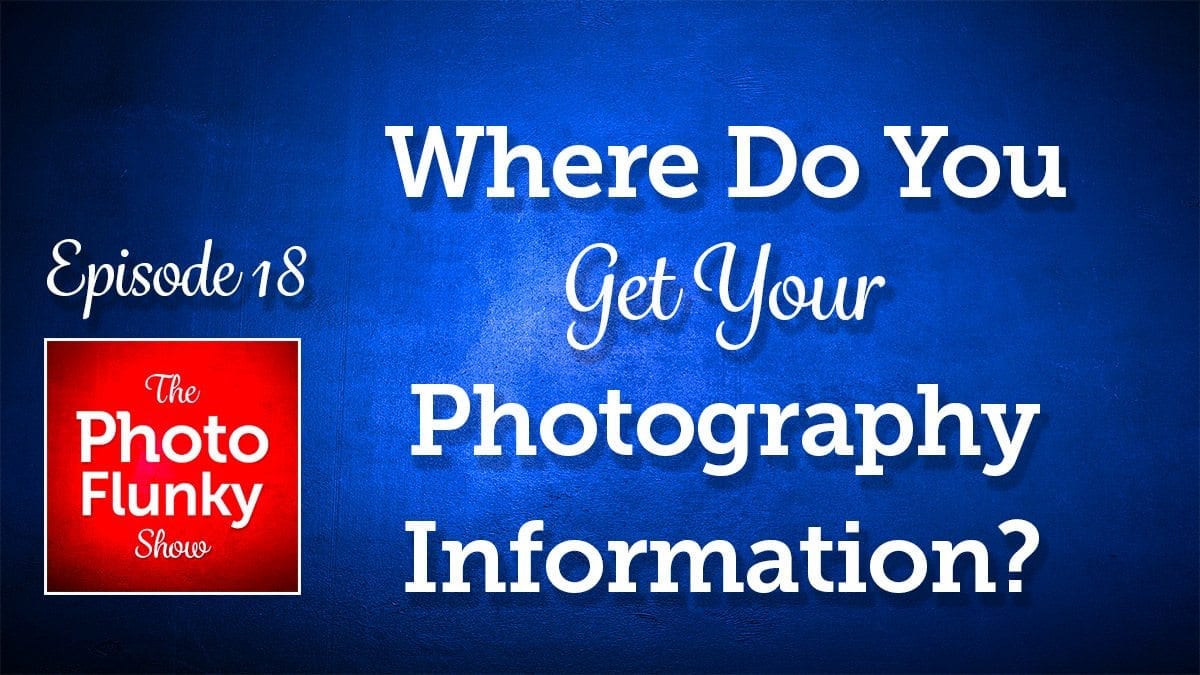

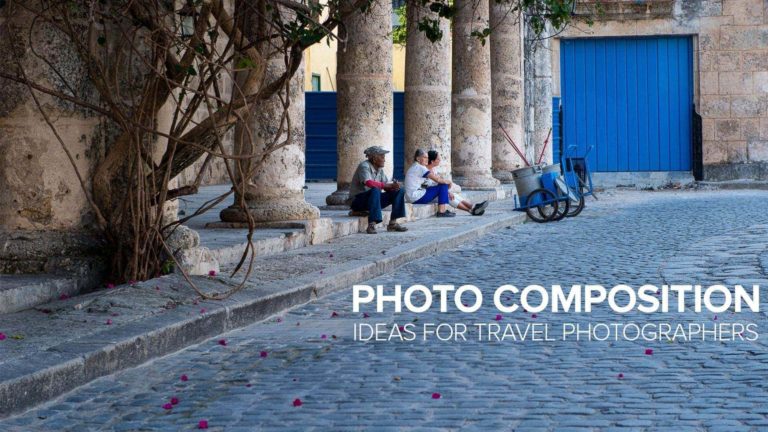
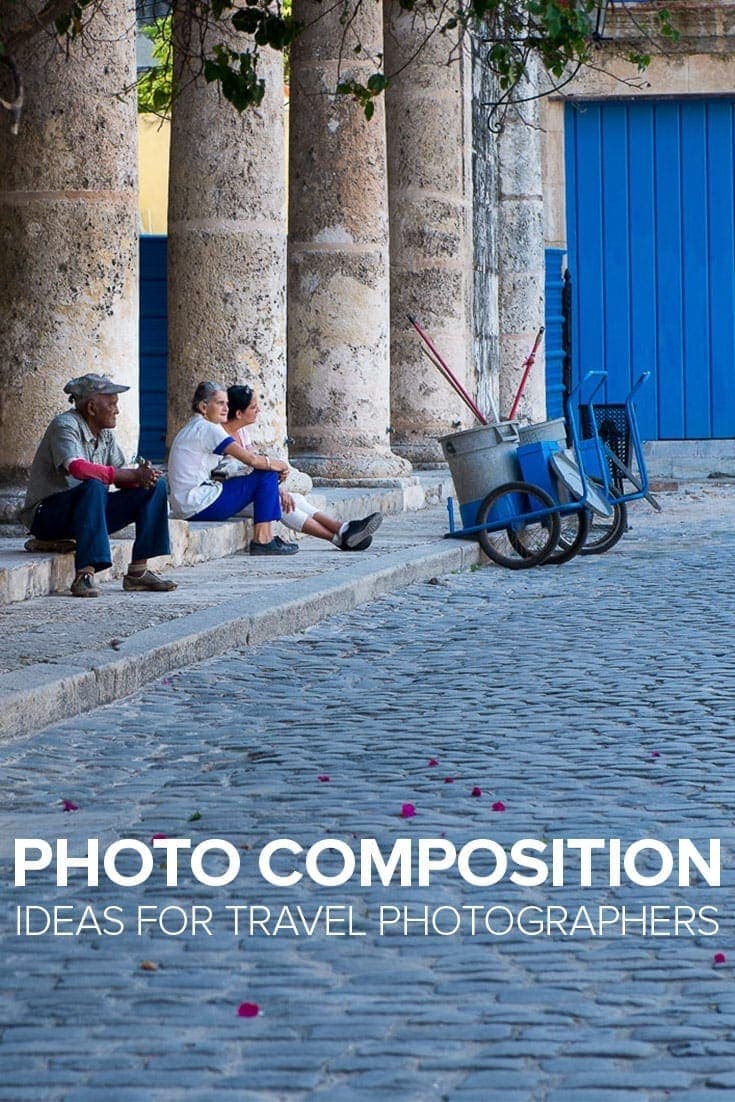
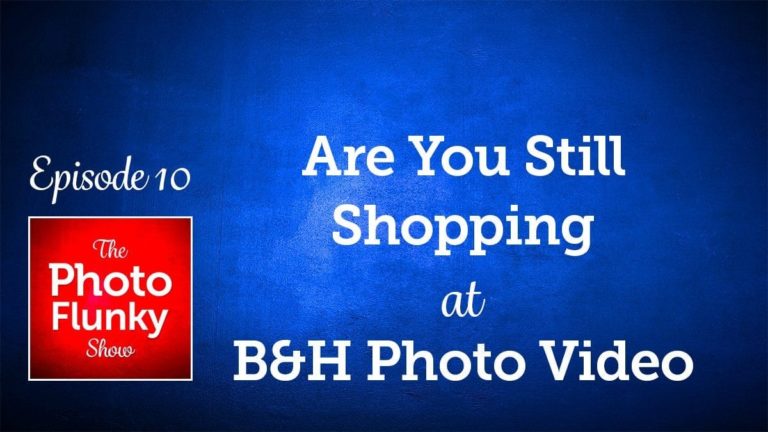
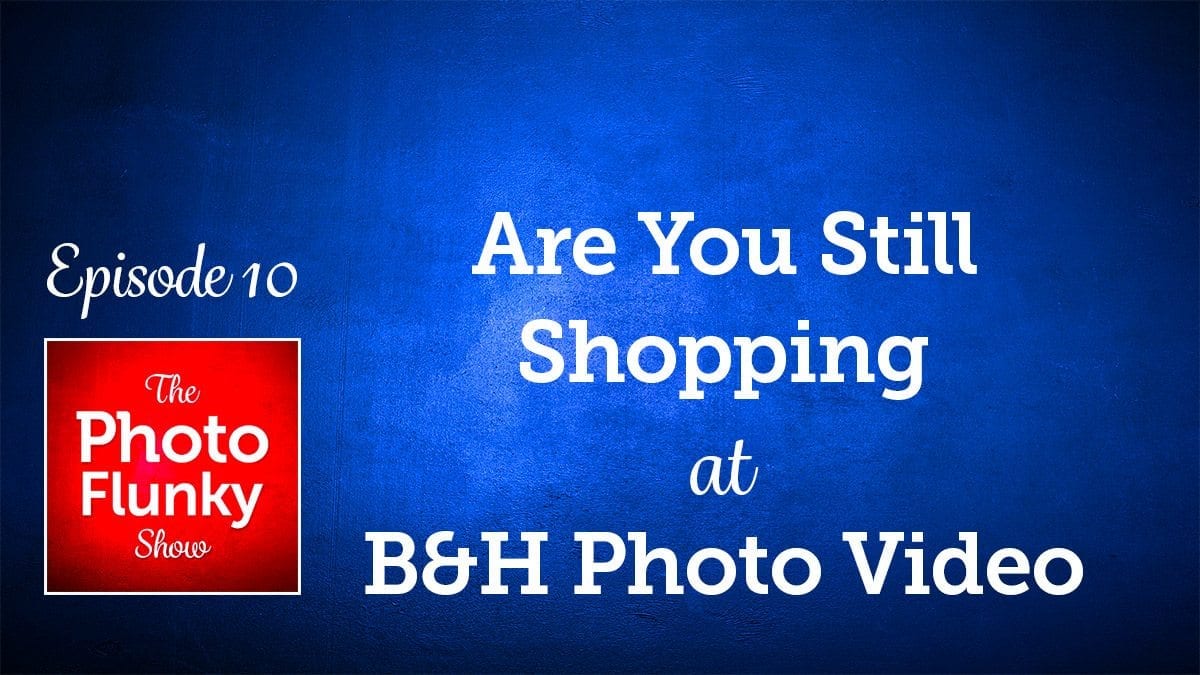
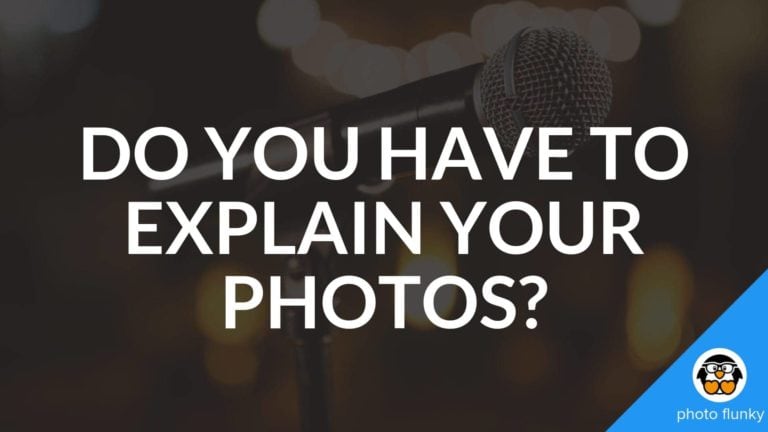
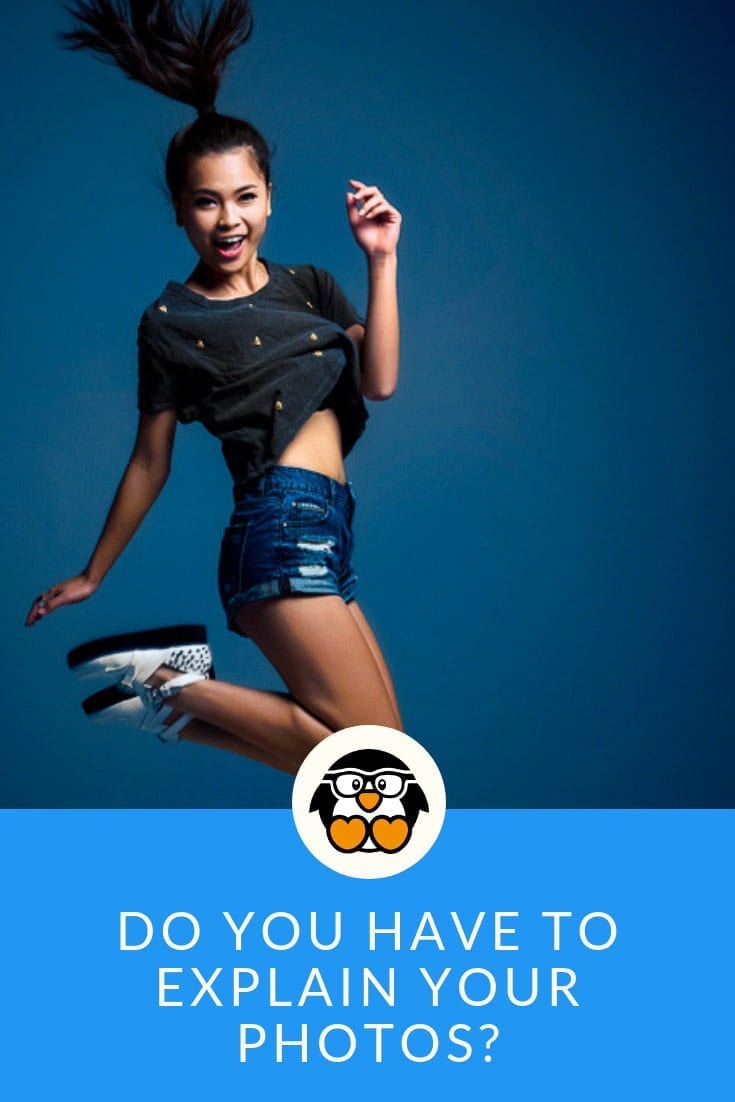
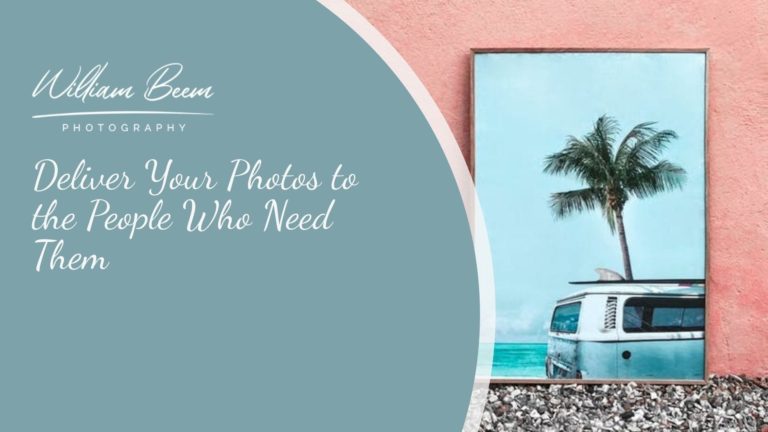
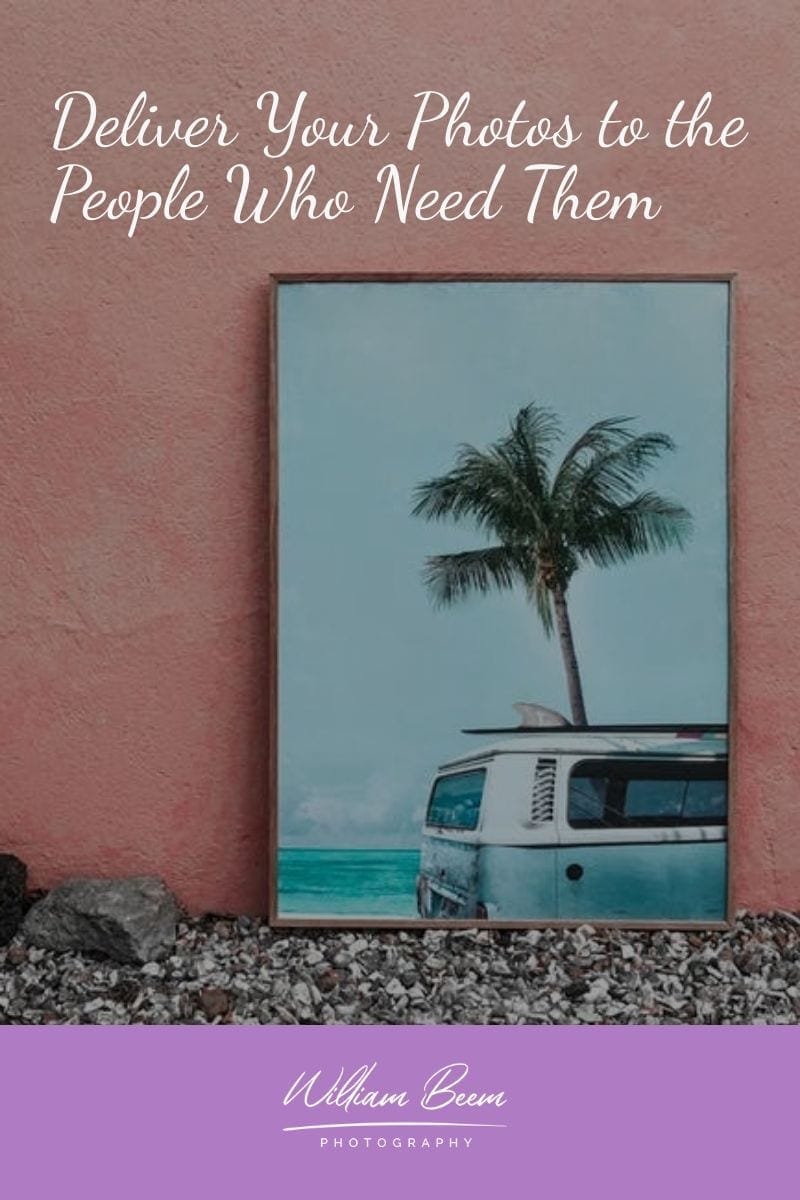
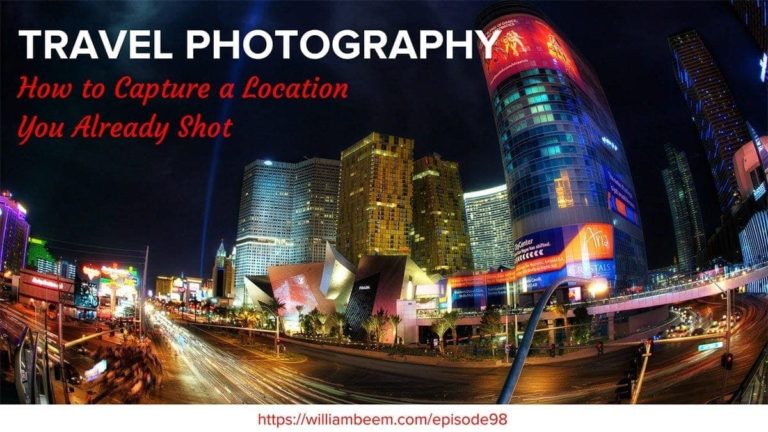
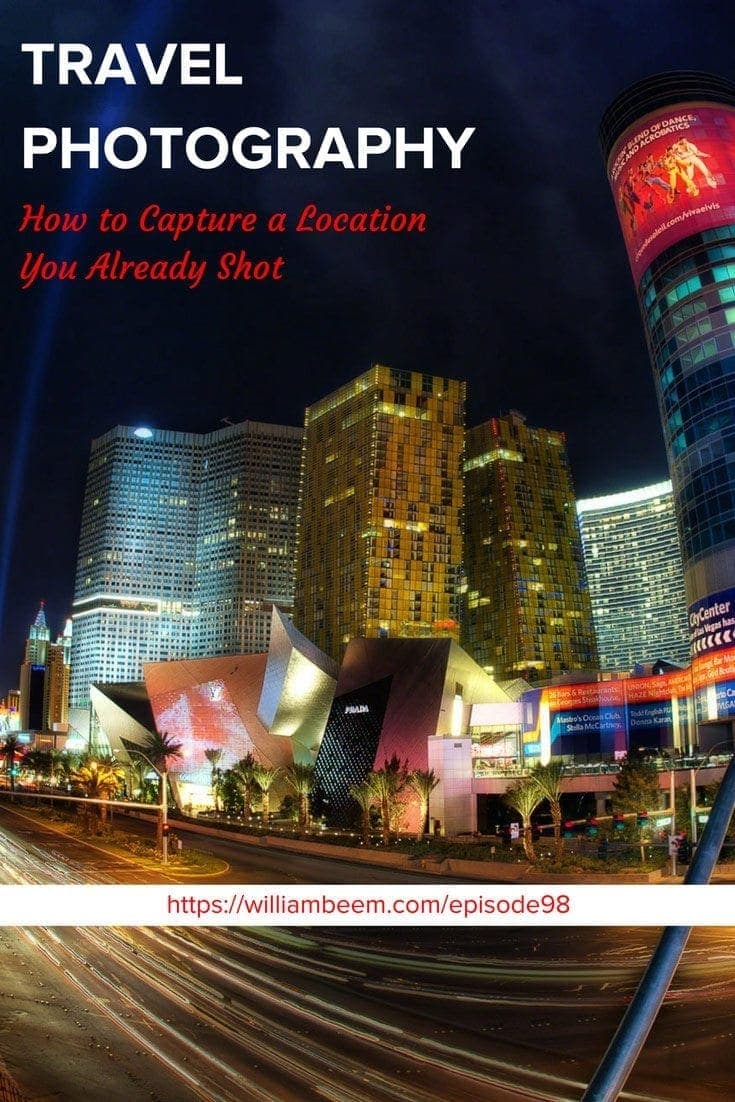
I have not received your blog or podcast for one week and 1/2 .